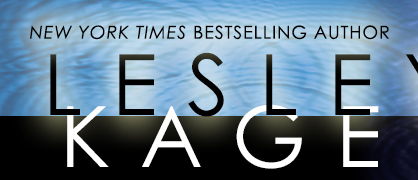Q & A about Whistling in the Dark

Whistling in the Dark is set in Milwaukee. Did you grow up there? |
Yup. I grew up on the west side in a neighborhood that had the same sort of feel as Vliet Street does. Irish and German Catholic families jammed into duplexes. A cadre of kids playing Kick the Can or Red Light, Green Light when the streetlights came on. It was a wonderful setting for a childhood. As an adult, I've lived in New York, Los Angeles and Chicago, but I brought my children back to Milwaukee to raise them. I think it might've been an attempt on my part to recapture the flavors of my childhood. Especially that Bavarian cream filled coffee cake. |
The book is set in the summer of 1959. I'm wondering about authenticity. May I ask how old you are? |
I was ten in 1959. That makes me 39. |
Actually, that makes you 57. |
Oh. |
Where did you get the idea for the book? |
I think we all reach a point in our lives when our childhood memories become old friends we would just love to hang out with again. I didn't think for a minute that I could be the only woman on the planet who was overwhelmed with the pace of life nowadays. I began to yearn for summers on the stoop. Cherry Popsicles. Secret hiding places. My sister snoring softly beside me. I needed to experience those feelings again. |
How much of this story is based on real-life experience? |
Quite a bit. My father was killed in a car accident when I was four. Left penniless, my mother quickly remarried to a man who, while not a drunken sot, did share other personality traits with Hall. My mother almost died of a staph infection when I was ten, leaving us girls essentially on our own while she recovered in the hospital. I have two sisters. Sally is based on my younger sister, Ellie. Nell, is modeled after my older sister, Ronney. And Troo and I have quite a bit in common. |
I was quite taken by the dichotomy of the time period. There was such innocence and yet... |
Exactly. In talking to other women my age about their memories, so many of them remembered jumping double dutch and Fabian and cloud watching and all those sorts of dreamy good times. But inevitably they'd pause, and shyly mention being flashed by their next door neighbor. Of an older brother's nighttime visitations. Of an Uncle who may have touched them in a certain way. So many of those traumas were swept under the 50's carpet. Children, especially girl children, have more value now. Thank God. |
My heart went out to the girls' mother. She was a victim of the times as well. |
I don't know if that has changed all that much. I know many women still feel trapped in loveless marriages. They're simply too afraid to leave, unsure if they can provide for their children, for themselves. |
Who is your favorite character in the novel? |
That's like asking who my favorite child is. |
Okay, how about your least favorite character in the novel. |
That's like asking who my least favorite child is. |
Give it a shot. |
I am quite fond of Sally. Her unflagging sweetness. Her deep seated sense of responsibility. And her desperate need to protect Troo. I find these winning qualities. On the flip side, I like Hall the least. Of course, Bobby is despicable, but Hall abandoned two small girls who needed tender loving care. |
Ethel was a wonderful character. Why did you introduce a Southern Baptist woman into 50's Milwaukee? |
Because she deserved to be there and wasn't. Milwaukee in the 50's was considered one of the most segregated cities in the country. The only time I would see someone of color was on our way to the beach, when we drove through The Core. Until the summer I was 13, and my stepfather brought home this eighteen year old kid to mow the lawn. I was stunned. The enamel blackness of his skin, his bouncy natty hair. Teddy's mere presence in our backyard stirred me in a truly elemental way. That electric smile of his, the one that promised a girl could get into little trouble if she wanted to? My oh my. What were you saying? |
Ethel? |
Oh, yeah. I love Ethel. She has that no-nonsense, I'm gonna run you ragged, but only because I love you to death southern sensibility about her. I adore that. Always have. I think it all goes back to my utter idolization of Gregory Peck as Atticus Finch in To Kill a Mockingbird. When your father dies when you are young, a girl looks for a replacement. He was mine. |
This is your first novel. What took you so long? |
My award winning fourth grade poem, I Am The Sun, is hanging in my daughter's room. I followed up that early success by writing a script for 77 Sunset Strip when I was eleven. I am still waiting for my royalties. I studied writing in college and wrote ad copy for years. After my daughter left for college, and my teenage son made it clear that he would rather stick a knife in his kidney than spend any more time with me than it took for the cheese to brown on a pizza, I made a dash for my computer. Mostly I played Solitaire for a month because the thought of setting forth down the novel road just about scared the Bejesus out of me. |
In what way? |
It's a little like that old line Rooney/Garland line, "Let's put on a show!" It sounds fun, we've got a couple actors here, but wait just a cotton pickin' minute...how the heck do you go about something like that? I had no idea of the craft involved in writing a novel. |
How did you get around that? |
I studied the works of other writers I admire to see how they constructed their stories. I analyzed movies. I also had the help of good early readers like my husband, Pete, who edited my everyday musings and said, "This is a nice story, dear. I like the characters. But when are they actually going to do something? They are spending quite a lot of time just, well, feeling." It was tough for me to learn how to integrate plot and character. Humor and tragedy. To find that balance. |
Humor plays an important part in this story, which is primarily about loss. Why? |
All of our lives are tough. We lose people, we lose love, we lose jobs, we lose our health. Humor is the only thing I know that helps transcend pain besides spirituality. |
Why did you choose to write the story from a ten year old's perspective? |
I didn't really choose too much of anything. It's a funny thing, writing. For me it starts with a little whispery voice of my main character, nudging me awake at night. Asking me to listen to a story. |
I know many authors outline their books before setting down to write. How about you? |
(Laughing uncontrollably.) I'm lucky to get my grocery list straight. I just get up in the morning, drink four cups of tea, light a cigarette, (I know, I know,) and hope for the best. As I get to know the characters better, I'm able to apply an actual thought process. But when I start out, writing is completely about the characters. |
How did you feel when you completed the book? |
Unbearably sad. I love those two little girls. I need two fluffy dogs named Sally and Troo. That's how much I want to keep them close. To love them up. |
How did you feel when you found out that your story would be published? |
It took me about a year to finish Whistling in the Dark. 365 morning mantras of ...Lesley, you are a complete and utter moron. Shouldn't you be spending the morning doing something a bit more productive? Don't you have socks to sort? Writing is a solitary activity. There is no one in the next cubicle over, ready to tell you, good job! And no matter how many times my friends and family mentioned that they absolutely loved what I was coming up with, and how sure they were that I'd eventually get published...well, being the sunny glass half fuller that I am...let's just say, I'm pretty relieved that someone other than my cousin Joyce in Sheboygan thinks I write okay. |






